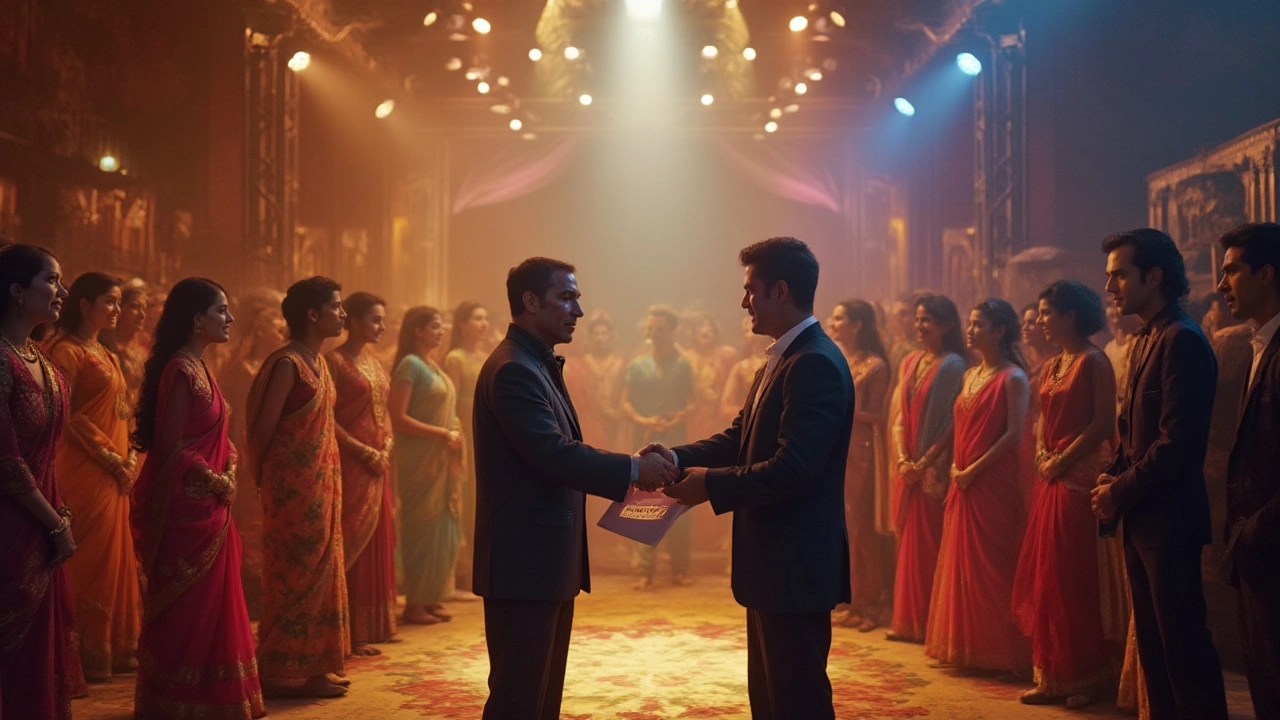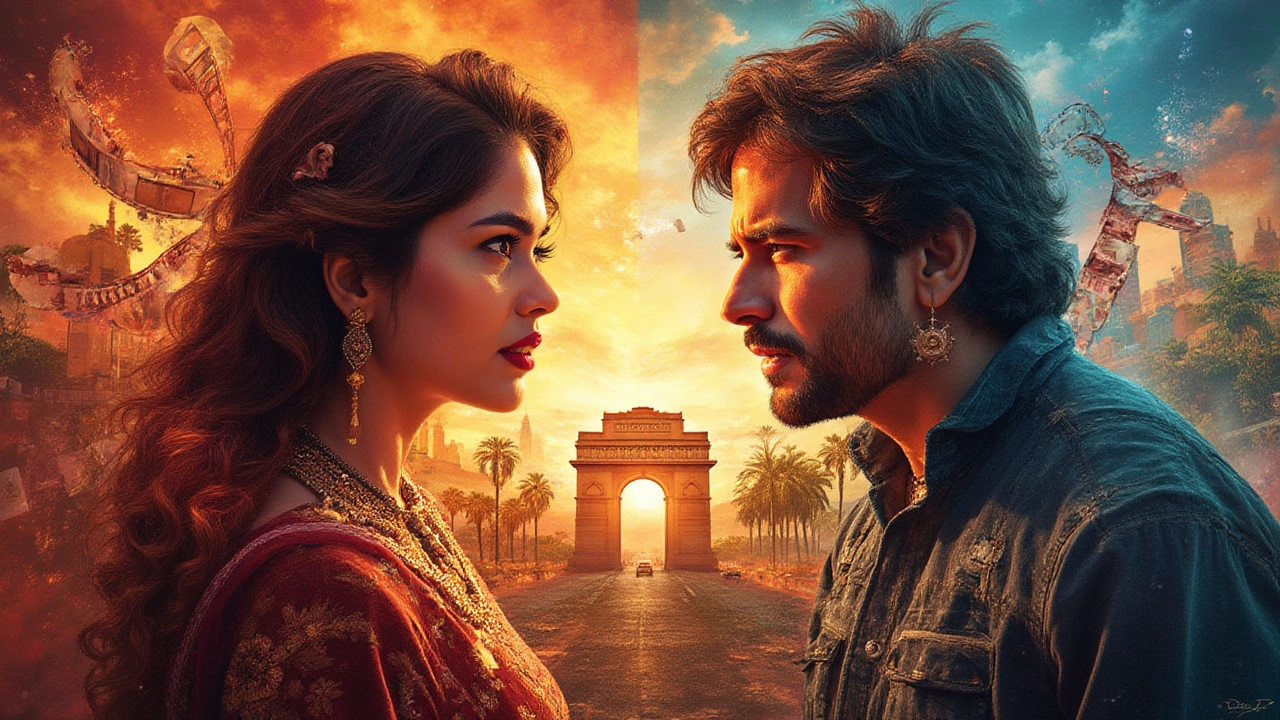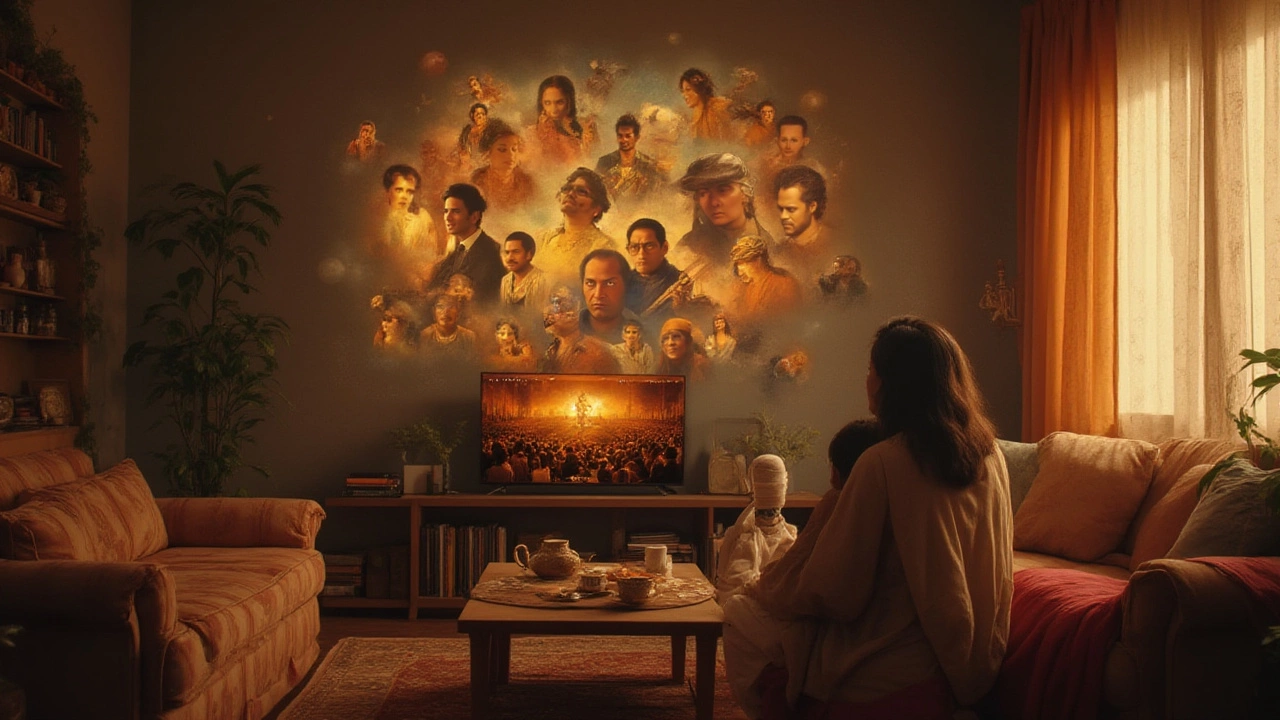Hollywood Remakes of Bollywood Films: The Surprising Truth Behind Movie Copycats
 Jul, 26 2025
Jul, 26 2025
You’d think Hollywood, with all its money and muscle, wouldn’t need to copy scripts from anywhere—least of all Bollywood. Yet, hidden beneath all those red carpets and Oscar speeches, there’s a secret history of Hollywood studios borrowing, sometimes outright lifting, storylines from Indian cinema. Ever wondered why some American flicks give you déjà vu if you grew up watching Bollywood? It’s not a coincidence. Sometimes it’s an official remake, more often it’s a quiet inspiration. Some cases have even landed lawyers in the mix. Let’s crack open this vault and see which Hollywood movies owe a big thank you to Bollywood.
The Most Notorious Remakes: Famous Hollywood Movies Borrowed from Bollywood
When it comes to remakes and inspirations, "Hollywood remakes of Bollywood films" is a topic loaded with juicy stories. Take for example "A Common Man" (2013), starring Ben Kingsley. This movie’s script is almost shot-for-shot identical to the Bollywood thriller "A Wednesday!" (2008), which starred Naseeruddin Shah. But here’s the twist: this was an official remake. The makers of "A Wednesday!" worked directly with the Hollywood team, so all the nods and winks were above board.
On the not-so-official side, things get more interesting. "Leap Year" (2010), that quirky rom-com with Amy Adams, closely mirrors "Jab We Met" (2007)—from the clumsy, mismatched pair to the serendipitous train journeys. No lawsuit ever happened, but fans of the Bollywood film spotted the similarity right away. Another famous example is "The Fault in Our Stars." In 2014, the Hollywood adaptation made huge waves, but Indian filmmakers pointed out uncanny parallels to the Bollywood hit "Kal Ho Naa Ho" (2003)—the love triangle, the terminal illness, even the vibe. Was it a direct copy? Maybe not, but inspiration was obvious.
Don’t forget "Fear" (1996), that Mark Wahlberg thriller. It’s surprisingly similar in plot to Yash Chopra’s bold 1993 movie "Darr," right down to the obsessive, creepy boyfriend terrorizing his love interest. Both films feature a mix of romance and psychological terror—although the tone and details were tweaked for American audiences. There’s also "Delivery Man" (2013), starring Vince Vaughn, which borrowed its central sperm-donor plot from "Vicky Donor" (2012). The makers of "Delivery Man" have never officially acknowledged this link, but the similarities are undeniable once you start comparing the two stories scene by scene.
It gets more serendipitous with movies like "Win a Date with Tad Hamilton!" (2004), which seems inspired by Bollywood’s "Rangeela" (1995). While there’s no confirmation, the love triangle involving a rising starlet and her best friend-turned-suitor is hard to ignore for seasoned Bollywood viewers. Sometimes the remake is obvious, other times it’s just a matter of parallel thinking—or perhaps, scriptwriters drawing ideas from every corner of the globe.

The Remake Pipeline: Why Hollywood Looks Toward Bollywood
You might wonder: why would Hollywood, which clearly has the resources, bother looking at Bollywood for inspiration? One word: storytelling. Bollywood is famous for weaving complex emotions, family drama, action, and comedy into one package. These multi-layered stories cut across cultures. Hollywood screenwriters, forever on the hunt for something fresh, have occasionally found these Indian scripts too good to resist.
Another reason is the global appeal of Indian diaspora. With more South Asians embedded in Hollywood, there’s a hunger for movies that reflect stories they grew up with—just dressed up with American actors and sensibilities. This isn’t just about selling tickets in India either: the South Asian diaspora from Canada to the UK to the US represent audiences with deep pockets and plenty of nostalgia for Bollywood.
But there’s a challenge: adapting Bollywood’s melodrama and song-dance sequences into something Americans can buy into often requires heavy-duty rewriting. You’ll rarely see a Hollywood remake carry over the exact same structure as its Bollywood original. The result? Some films end up feeling like watered-down versions, while others surprise you by going in an entirely new direction. The key tip for filmmakers looking to tread this path? If you lift, make sure you localize—otherwise you’re just serving up lukewarm leftovers. Sometimes, as with "A Common Man," buying the official rights and getting direct creative input pays off. Other times, the attempts backfire and lead to cringeworthy flops. Word to the wise: give credit, or the internet will call you out.
If you’re a Bollywood fan, the best way to spot a likely remake is to follow the global film festival circuit. Many Indian films shown at Sundance, Cannes, or Toronto mysteriously get picked up by Hollywood shortly afterward. If you notice whispers about your favorite Bollywood director "working with Netflix US" or "helping develop a script in LA," stay tuned… chances are you’ll see a familiar story on the big screen or streaming soon, just with a new set of faces and accents.

Spotting a Remake: Clues, Controversy, and Cultural Impact
Not all remakes are bad, and not all adaptations are sneaky. Sometimes, Hollywood directors openly rave about the Bollywood films that inspired them. Quentin Tarantino has lauded Indian thrillers; Wes Anderson borrowed color palettes and whimsical scenes. But when does inspiration cross the line into imitation? That line is often murky and controversial. Fans get sharp-eyed and vocal—social media today moves faster than lawyers, and if there’s a whiff of plagiarism, you’ll see side-by-side comparison videos circulate in less than a day.
You can spot a Bollywood-to-Hollywood remake by paying attention to a few signature signs: the basic plot arc, character names that sound awkwardly translated, and a theme that feels more dramatic than most American films. If the storyline involves a long-lost sibling, a near-impossible romantic triangle, or melodramatic twists, chances are there’s a Bollywood cousin lurking in the credits. Look especially for unusual character introductions or sudden, improbable scenes where everything works out neatly. Bollywood stories thrive on such moments—and Hollywood sometimes borrows them wholesale.
Beyond the cinematic world, these remakes matter for bigger reasons. They reflect how Indian stories are making their way into global pop culture, rising from "niche" to mainstream. For years, Indian cinema was seen as something separate from "Western art," confined to a handful of international festivals. Now, with Netflix, Amazon Prime, and Disney+ streaming Bollywood originals, the lines are blurring fast. More Hollywood studios are buying remake rights officially—something unheard of two decades ago. Just look at Gurinder Chadha’s "Bride and Prejudice" (2004): a mashup of Jane Austen and Bollywood aesthetics, now considered a cult classic for both industries.
Still, the controversy boils down to respect. Bollywood creators pour heart, soul, and years into their films. When Hollywood takes without giving credit, tempers flare—not just on set, but across continents. These controversies can actually help—sparking conversations about intellectual property, international storytelling, and the value of giving credit where it’s due. The social media age also means more accountability. Now, a single tweet can turn a low-key remake into a global scandal.
For fans, there’s a playful side to this detective work. The next time you watch a Hollywood movie and sense a familiar twist, go fish out an old Bollywood DVD or hit up your streaming service. Compare storylines. Check those credits carefully. Often, you’ll find a quiet acknowledgment in the fine print. And who knows? You may stumble across the next big "Bollywood to Hollywood" story before the rest of the world does. Watching with a sharp eye isn’t just fun—it’s also a way to appreciate how storytelling travels, transforms, and connects us all.